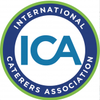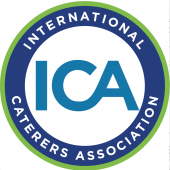When We Change, We Grow: How to Inspire, Engage & Elevate Your Team in 2022When We Change, We Grow: How to Inspire, Engage & Elevate Your Team in 2022
October 31, 2022

Let’s be honest—the world and our industry look very different now than they did just a year ago. We are different than we were a year ago. So, business practices that once worked aren’t going to be effective anymore. It’s time to reinvent the way you operate for ultimate success, and part of that means looking inward and embracing change rather than continuing to fear it. That’s why the International Caterers Association roundtable hosted a special guest speaker, Margaret Brower, founder & CEO of Rainmaker Sales & Marketing, for this month’s education webinar.
Brower led catering business owners, marketers, chefs and managers through a few unique exercises to build a foundation that is accepting of change. Because when leadership changes, that is more easily passed down for greater organizational success.
Don’t miss the ICA during Catersource Conference & Tradeshow
Want more chats about goals and motivation from other like-minded catering professionals seeking growth? The International Caterers Association is waiting for you! Stop by the ICA Inspiration Zone during Catersource Conference & Tradeshow 2022 to join friends, peers, and colleagues.
These exercises unveiled new sales strategies and inspiration to take into selling and growing in this new quarter and for the rest of 2022. Today, we’re going to share with you some of those same principles, because we’re stronger when we grow and change together!
Embracing change & banishing fear
As humans, we innately run from discomfort—which means a lot of us fear change. It’s uncomfortable, so it makes sense, right? But while change can be difficult, what’s the benefit of staying the same? As a leader for your catering company, you must accept change and challenge the status quo.

You’ve probably heard the quote, “Insanity is doing the same thing over and over again but expecting different results.” It’s a pretty smart quote, so why don’t we listen to that?
Here’s where the exercise comes in. Picture yourself at 25:
Do you have much in common with the person you were then?
Did that person make the decisions the same way you do now?
Are your expectations the same?
What is your motivation and your outlook on the business?
Take note of how much you have changed over the years. Think about how different you do things now versus five or even 10 years ago. We are actually built for change, if you think about it!
Now, think back through your career.
Who were the people that helped you?
What were they like?
What was their style?
How did they encourage you to think bigger and better, fostering growth?
They inspired you to think of things differently. They inspired you to change.
We as leaders are inspired to change, and when you’re inspired to change, that’s contagious. Leading effectively and ensuring that your team is ready and invigorated by change starts with you as a leader.
So, think about your path and all the changes you’ve weathered. Think about how change has led to your success and share that with your team. An inspired team is a team that will help you sell and service effectively, passionately and creatively.
Leveraging self-awareness to communicate effectively
Now, what did that exercise spark? A little self-awareness.
Positive change starts with self-awareness. Being self-aware allows us to better understand why we feel and act a certain way. When we are self-aware, we have the power to influence outcomes, practice better decision-making and enjoy greater self-confidence.
Essentially, it helps us to:
Communicate more clearly
Understand multiple perspectives
Avoid assuming
All this makes us more effective communicators! Every day, your team is watching you and how you communicate. And effective teams share information.
So, exercise time! Ask yourself if you’ve been fostering communication with your team. For most, the answer isn’t always yes.
To start open lines of communication, do this:
Set a weekly or bi-weekly meeting where you work together to outline sales or services focuses for the next month, quarter or year. The first meeting should be setting these priorities. Then, give your team some time to self-reflect and think.

At the second meeting, start by sharing new ways you think you can get there—what are ways you think you can get there? If people can give their feedback, they will have the buy-in.
The following bi-weekly meetings should be about measuring progress and re-evaluating with creative ideas if things aren’t going to plan.
Channeling new inspiration
Are you motivated by the same thing you were before the pandemic? Probably not. On that note, when was the last time you asked your team what motivates them?
Cue the next exercise.
Distribute the below worksheet among your team and have them return it to their manager. Then, compile the list of motivations. Use this as a tool to determine what your team needs to feel inspired and engaged to go out there and serve your clients well.

Brower shared an example of this exercise done previously with a team she worked with. She was working with a remote team to try and determine why morale was low. The motivation sheets came back, and teamwork was a motivator for every employee. So now, the company fosters teamwork and collaboration as a top priority, and they’ve seen positive growth.
Meet employees where they’re at and you’ll succeed.
Be proactive about knowledge sharing
Perhaps the most important thing is proactive training and knowledge sharing. Oftentimes, training in catering sales is situational or as things arise throughout specific contracts.

How many times have you had an employee ask, “What do I do about this situation?” In many cases, we are trained throughout our journey by the situations that arose.
So, how do you shift that? Here’s an exercise to try:
Keep a little notebook on the advice you give each day so you can share tips, tricks and lessons in sales meetings. Whether it’s a physical note if you prefer pen and paper or a note document on your phone where you can also record voice notes, just get those thoughts down and share them weekly.
This proactive sharing of knowledge will avoid questions and empower people. Another exercise you could try is:
Two days before your sales meeting, email your team specified leads in their pipeline or a difficult piece of business they closed and let them know they will discuss it at the meeting. This way, your team can learn from one another.
This sort of ongoing catering education is one of the principles the ICA is founded on. Allow your team to join organizations like this for continued education and engagement that will only spark growth in the long run!
For more information on how to join the ICA and to be notified of future catering industry webinars, events and education opportunities, visit internationalcaterers.org. Keep this momentum going with ICA membership for your team!




.png?width=700&auto=webp&quality=80&disable=upscale)
.png?width=700&auto=webp&quality=80&disable=upscale)

